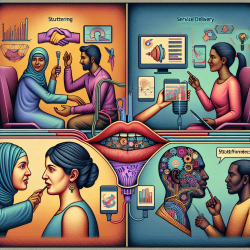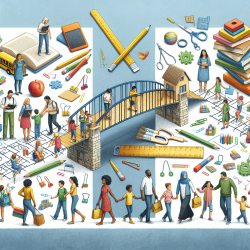Conducting research with refugee communities presents unique challenges that require careful navigation of institutional barriers. The study "(De)constructing Refugee Vulnerability: Overcoming Institutional Barriers to Ethnographic Research With Refugee Communities" by Bronwyn Bragg offers valuable insights into these challenges and provides guidance for practitioners seeking to enhance their skills in this area.
The Complexity of Refugee Vulnerability
The concept of vulnerability is often central to discussions about refugee research. However, this study highlights the importance of understanding vulnerability as contextual and contingent rather than inherent. By examining the bureaucratic hurdles faced during the ethics approval process, Bragg sheds light on how institutional perceptions can hinder meaningful engagement with refugee communities.
One key takeaway from the study is the need to move beyond viewing refugees as perpetual victims lacking agency. Instead, practitioners are encouraged to recognize the political and agentic nature of refugees, who possess skills and resources to make informed decisions about their participation in research.
Navigating Ethical Considerations
Ethical considerations are paramount in any research involving human subjects, particularly when working with vulnerable populations like refugees. The study underscores the importance of aligning ethical practices with the lived realities of refugee families. This involves acknowledging the gaps between institutionally perceived vulnerabilities and the actual challenges faced by refugees.
Practitioners are encouraged to adopt a nuanced approach that respects the autonomy and agency of refugee participants. This includes developing culturally sensitive methodologies and ensuring that research practices do not inadvertently reinforce problematic stereotypes or assumptions about refugees.
Overcoming Bureaucratic Hurdles
Institutional barriers, such as those imposed by Research Ethics Boards (REBs), can pose significant challenges for researchers working with refugee communities. The study highlights how these barriers often stem from unexamined assumptions about what it means to be a refugee.
To overcome these hurdles, practitioners should advocate for more flexible and contextually informed ethical guidelines that recognize the diverse experiences and strengths of refugee communities. Engaging with community members during the research design process can also help ensure that methodologies are culturally appropriate and responsive to participants' needs.
The Role of Ethnography in Refugee Research
Ethnography offers a powerful tool for exploring the rich and complex lived experiences of refugees. By focusing on everyday homemaking and placemaking practices, ethnographers can disrupt normative accounts of refugee suffering and provide more nuanced insights into their resilience and agency.
This study emphasizes the value of ethnographic methods in capturing the particularities of refugee life and challenging dominant narratives that position refugees solely as victims. Practitioners are encouraged to employ ethnographic tools to uncover the diverse strategies refugees use to navigate their new environments and create meaningful lives.
Encouraging Further Research
The findings from this study highlight the need for continued exploration of institutional barriers in refugee research. Practitioners are encouraged to engage in further research that examines how ethical guidelines can be adapted to better support meaningful engagement with refugee communities.
By sharing insights from their own experiences and collaborating with other researchers, practitioners can contribute to a growing body of knowledge that seeks to improve research practices with vulnerable populations.
To read the original research paper, please follow this link: (De)constructing Refugee Vulnerability: Overcoming Institutional Barriers to Ethnographic Research With Refugee Communities.










